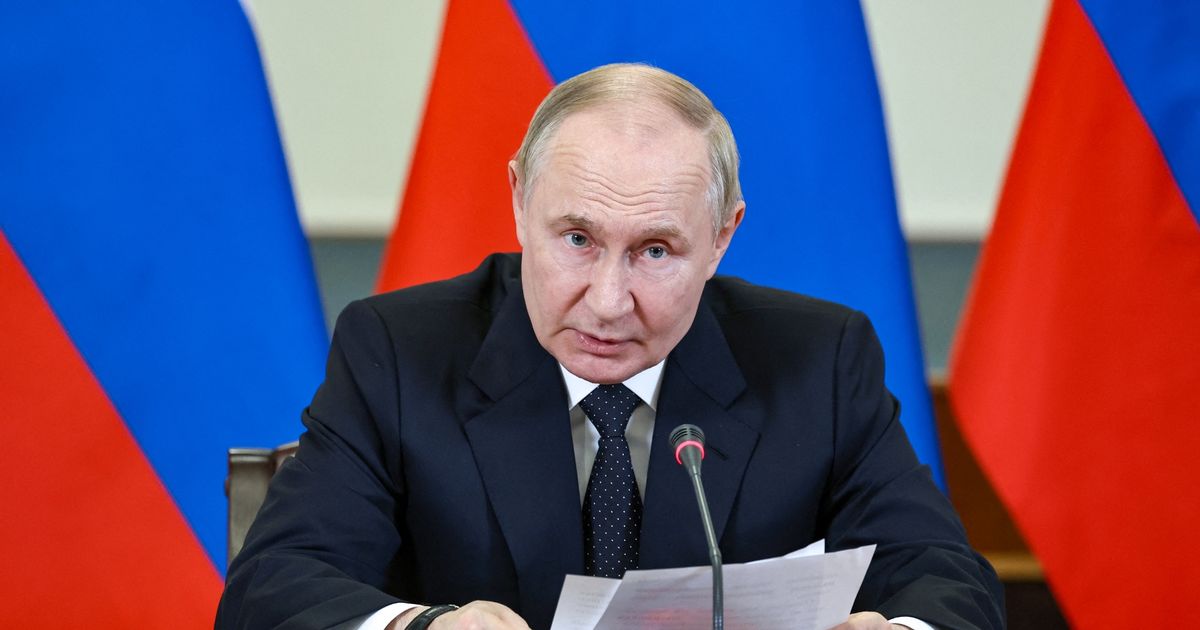World
Russia Eyes Potential Expansion into Moldova and Baltic States

Concerns are mounting that Russian President Vladimir Putin is considering military actions against another European nation, particularly Moldova and the Baltic states. The Institute for the Study of War (ISW) reported in June that Russia is preparing a narrative that could justify a potential invasion, invoking a supposed obligation to defend its “compatriots abroad.” This rhetoric reflects the concept of “Russkiy Mir,” which promotes the idea of a “Russian world” extending beyond its borders. Analysts suggest that this narrative is reminiscent of Putin’s justification for the full-scale invasion of Ukraine in February 2022.
The situation is further intensified by ongoing covert operations conducted by Russian security forces against the United States and its allies. These actions are perceived as preparations for a larger conflict with NATO. A cybersecurity alert issued by the US Cybersecurity and Infrastructure Security Agency (CISA) in collaboration with intelligence agencies from multiple countries, including Germany, Czechia, Poland, Australia, Canada, Denmark, Estonia, France, and the Netherlands, revealed that the Russian military intelligence agency, GRU, has been targeting key sectors such as defence, transport, and IT services in NATO countries, as well as in Romania, Moldova, and Ukraine.
Military Analysts Sound Alarm
Specialists are increasingly worried that Russia’s ambitions may extend further into eastern Europe. Rebekah Koffler, a military intelligence analyst with expertise in Russian military strategy, supports the view that Russia is poised for another offensive campaign in the coming years. In an article for The Telegraph, she expressed caution regarding whether a NATO country would be the Kremlin’s next target, suggesting that such an escalation might only occur if NATO were to intervene directly in Ukraine by deploying troops.
Koffler emphasized the significance of NATO’s actions over the next few years, stating, “What NATO does or doesn’t do in the next few years could be highly significant in determining whether Putin decides to attack another post-Soviet state – such as Moldova.” She pointed out that Russia aims to disrupt NATO’s “network-centric approach to war” by targeting crucial systems related to command, control, communications, computers, intelligence, surveillance, and reconnaissance (C4ISR).
The analyst further argued that NATO member states must take proactive measures beyond merely increasing military spending. A deeper understanding of the alliance’s vulnerabilities is essential to effectively counter potential threats. Koffler noted that the Kremlin often employs indirect tactics against its adversaries rather than overt aggression, suggesting that vigilance and strategic planning are crucial in the face of these evolving challenges.
As the geopolitical landscape continues to shift, the potential implications of Russia’s actions on European stability remain significant. Nations across the continent are urged to remain alert and prepared in response to the evolving situation.
-

 Top Stories3 months ago
Top Stories3 months agoTributes Surge for 9-Year-Old Leon Briody After Cancer Battle
-

 Entertainment4 months ago
Entertainment4 months agoAimee Osbourne Joins Family for Emotional Tribute to Ozzy
-

 Politics4 months ago
Politics4 months agoDanny Healy-Rae Considers Complaint After Altercation with Garda
-

 Top Stories4 months ago
Top Stories4 months agoIreland Enjoys Summer Heat as Hurricane Erin Approaches Atlantic
-

 World5 months ago
World5 months agoHawaii Commemorates 80 Years Since Hiroshima Bombing with Ceremony
-

 Top Stories3 months ago
Top Stories3 months agoNewcastle West Woman Patricia Foley Found Safe After Urgent Search
-

 Top Stories5 months ago
Top Stories5 months agoFianna Fáil TDs Urgently Consider Maire Geoghegan-Quinn for Presidency
-

 World5 months ago
World5 months agoCouple Convicted of Murdering Two-Year-Old Grandson in Wales
-

 World5 months ago
World5 months agoGaza Aid Distribution Tragedy: 20 Killed Amid Ongoing Violence
-

 World5 months ago
World5 months agoAristocrat Constance Marten and Partner Convicted of Infant Murder
-

 Top Stories4 months ago
Top Stories4 months agoClimbing Errigal: A Must-Do Summer Adventure in Donegal
-

 Top Stories4 months ago
Top Stories4 months agoHike Donegal’s Errigal Mountain NOW for Unforgettable Summer Views









